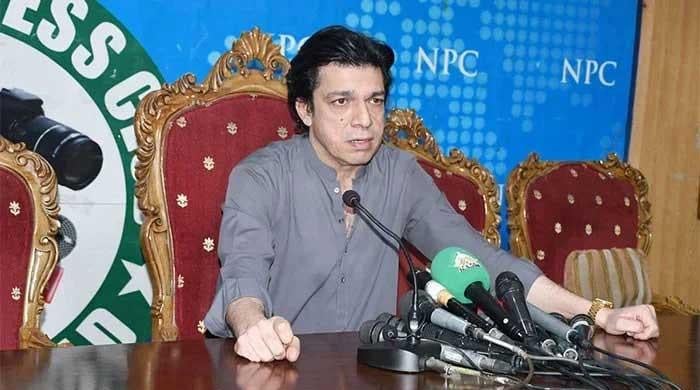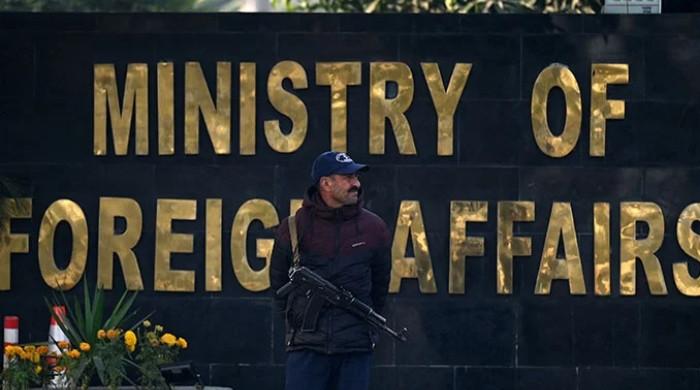Council of Islamic Ideology issues 20-point code of conduct to promote inter-sect harmony
Council of Islamic Ideology's code of conduct calls on persons to refrain from promoting inter-sect hatred and terrorism
October 06, 2020
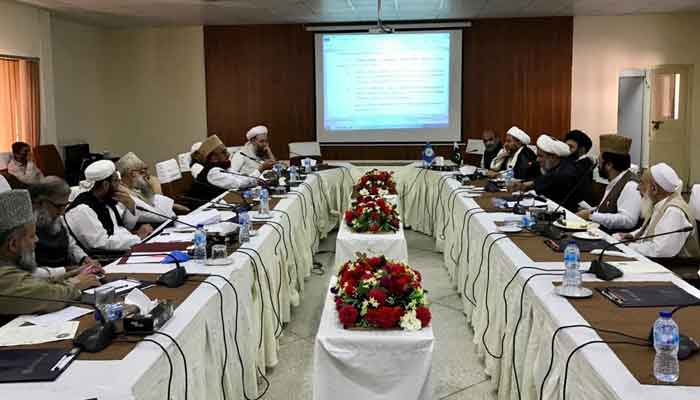
The Council of Islamic Ideology (CII) held a Paigham-e-Pakistan conference on Tuesday where a 20-point code of conduct to promote interfaith harmony in the country.
The code of conduct focused on urging the government to ensure protection of non-Muslims, promote interfaith harmony by banning any speech that is controversial regarding any sect in Pakistan on TV, print and electronic media.
Here are the points of the Paigham-e-Pakistan code of conduct:
1. It is obligatory on every citizen of the country to recognise and accept the Constitution and fulfil their oath of loyalty towards the state.
2. All citizens in the country should ensure implementation of all basic rights of the people enshrined in the Constitution that pertain to social and political lives, freedom of expression, right to worship and religious beliefs etc.
3. The protection of the Islamic identity of the Constitution should be guaranteed. It is the right of every citizen to strive peacefully for the implementation of Shariah laws in the country.
4. Injustice, armed struggle against the state, torture and spreading chaos in the name of religion will be considered an act of rebellion. It is against the spirit of Islam and no individual has the right to declare any person, government or state institution an infidel or 'kafir'.
5. It is necessary for ulemas, scholars and citizens to support state institutions, especially those tasked with enforcing law and order so that terrorism can be rooted out from society.
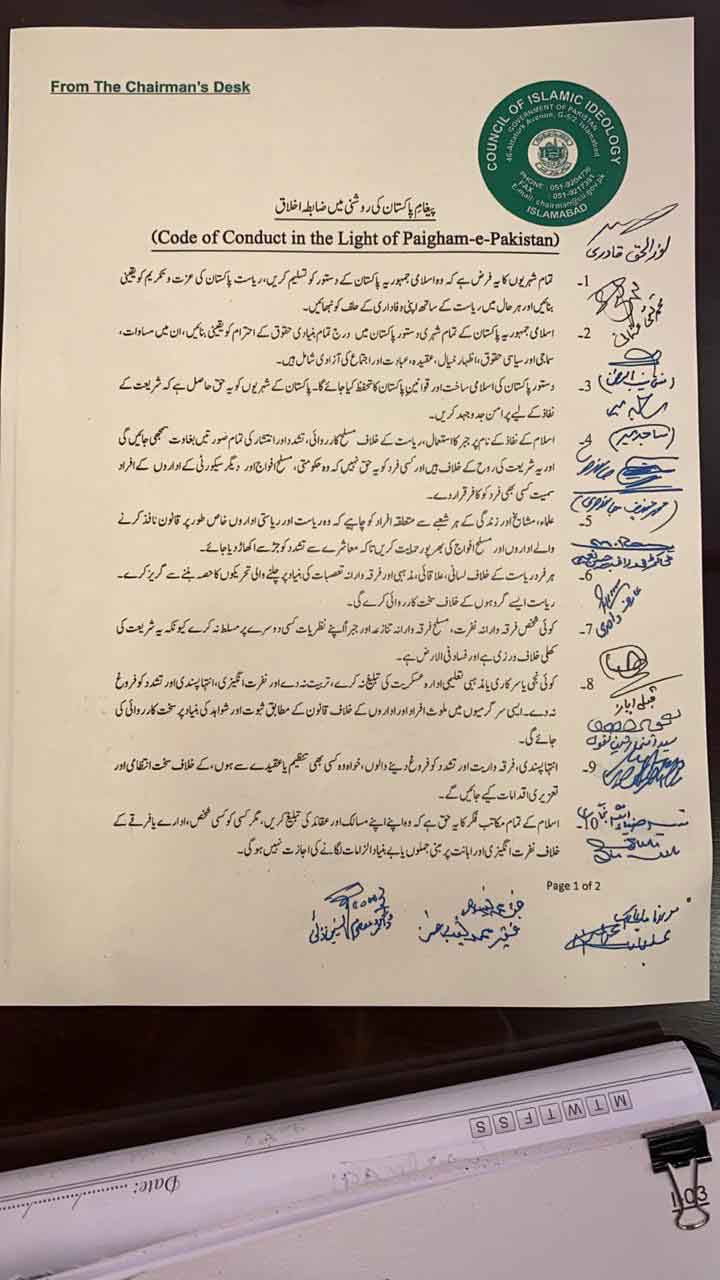
6. Every individual should abstain from joining any anti-state movement that focuses on ethnic, religious and sectarian issues.
7. No person should impose inter-sect hatred, armed inter-sect conflict and his ideals upon another person as this is against the Shariah.
8. Private, government and religious educational institutions should neither train nor provide knowledge relating to militancy, hatred and extremism to students. Strict action, based on solid evidence and proof, will be taken against such institutions or elements found involved in these practices.
9. Strict action will be taken against any elements found promoting extremism, sectarian hatred and torture, regardless of which organisation or belief they belong to.
10. All sects belonging to Islam have the right to propagate their message but no one will be allowed to utter any sentence which promotes hate against any person, institution or organisation.
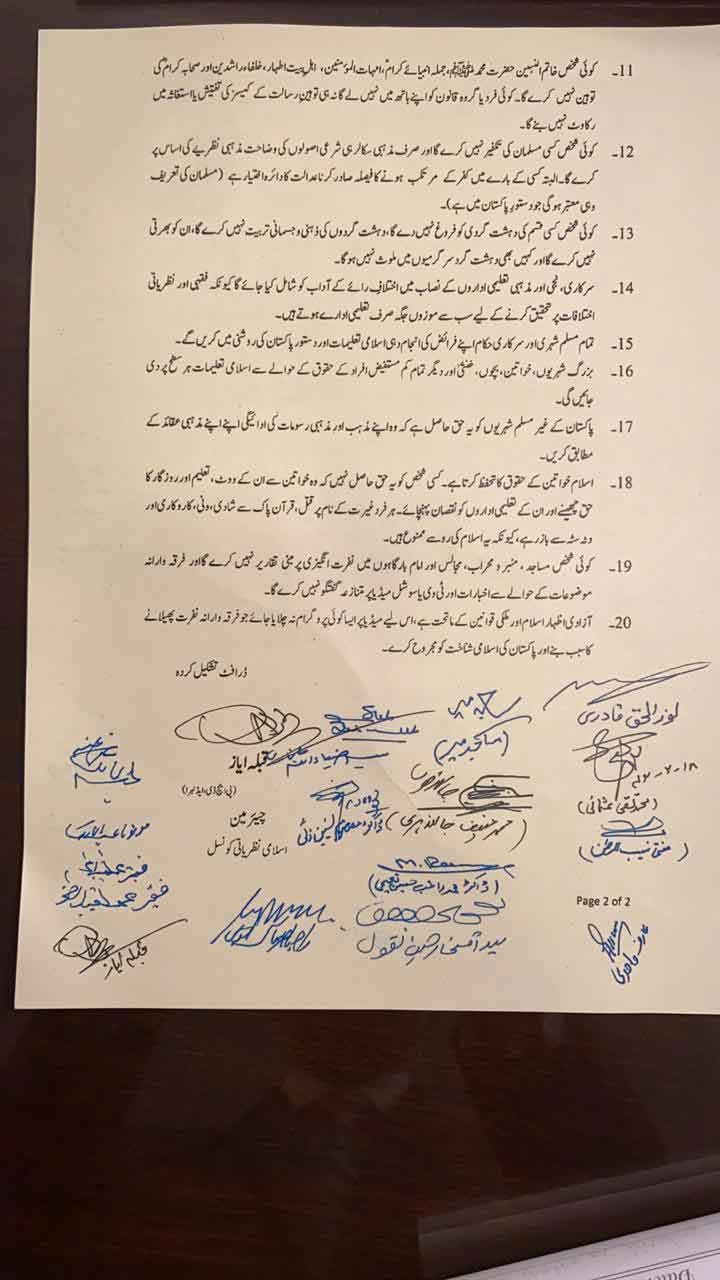
11. No one will be allowed to insult the Holy Prophet Muhammad (PBUH), the Righteous Caliphs, the Ahl-e-Bait, the Companions of the Holy Prophet (PBUH) and the Mothers of the Faithful. No person or group will be allowed to take the law into their hands nor obstruct the investigation or prosecution of cases pertaining to blasphemy cases.
12. It is the prerogative of the courts to decide who is guilty of an act of kufr. The definition of a Muslim, as mentioned in the Constitution, will remain the same.
13. No person will commit acts of terrorism and neither provide training to terrorists. He will neither be involved in any terrorist activities nor include militants into his organisation.
14. Religious, public and private educational institutions will accommodate the differences of opinion of various Islamic schools of thought in their syllabi as religious institutions are the best places where ideological differences can be studied and investigated.
15. All Muslim citizens and government officials will carry out their duties based on the laws of Islam and the Constitution.
16. Islamic knowledge regarding the rights of the elderly, women, children and the differently-abled will be provided at every level.
17. It is the right of the non-Muslim citizens of Pakistan to practice their religious activities according to their beliefs.
18. Islam protects the rights of women. No person is allowed to snatch the rights of employment, vote and education from women. People should abstain from committing acts such as marrying women to the Holy Quran, honour killings, karo kari, Vani and other similar practices as these are against the teachings of Islam.
19. No person will use the mosque, mimbar, imam bargahs or majalis to make speeches or issue controversial statements that promote inter-sect harted. Controversial statements on sectarian issues should be avoided on print, electronic and social media.
20. Freedom of expression operates within the Constitution and the laws of Islam, hence no program should be aired on media that promote sectarian hatred or damages Pakistan's Islamic identity.







